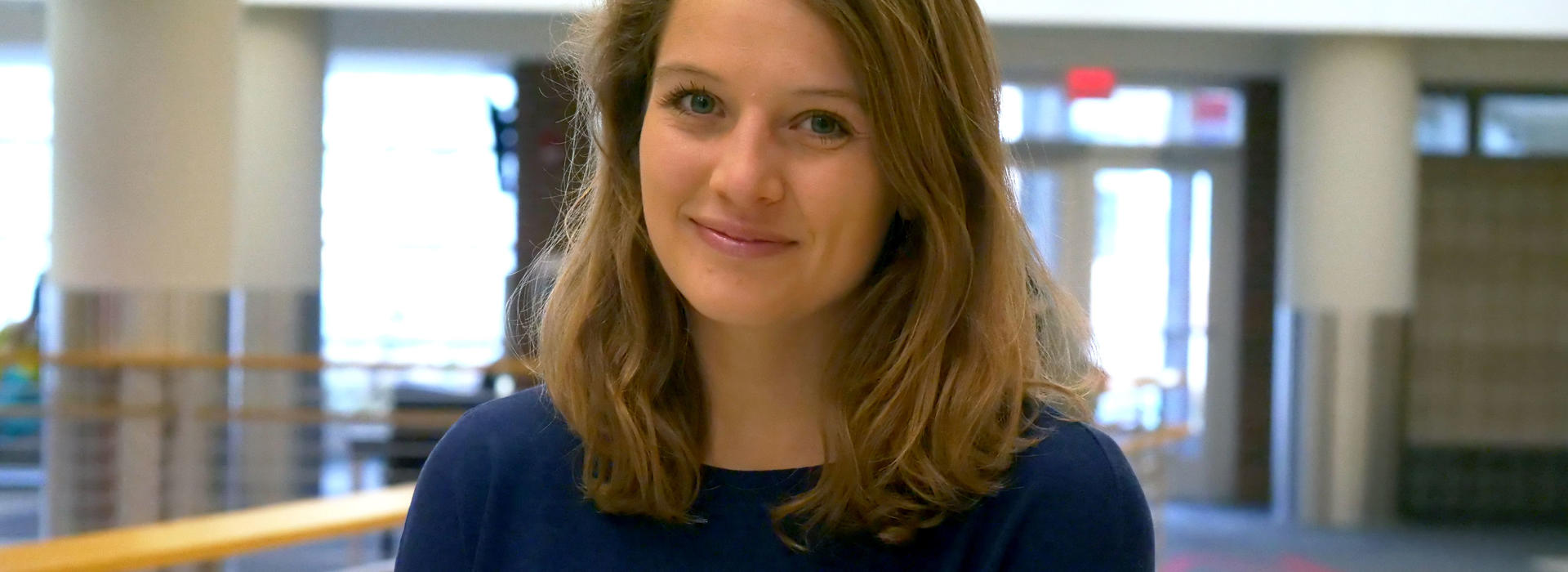
Scholarship Makes an Impact on First-Year Medical Student
Mina Krenz just finished her inaugural round of midterms as a first-year medical student at the University of Minnesota Medical School.
“It was a long two weeks of constantly studying, but it was a good challenge working so hard to then be tested and know the material,” Krenz said.
Despite the hard work, she’s grateful to be in class—a privilege she says is possible with the help of the Future Physicians Scholarship. Krenz joins more than 50 other classmates since 2016 who have received the scholarship thanks to the support of generous donors, including alumni, staff, faculty and friends of the Medical School.
“The fact that I received this scholarship makes everything more attainable,” Krenz said.
Krenz received her undergraduate degree at the University of San Diego, and afterwards, spent three years conducting research and working. Her first year, she worked in Washington, D.C. at the FDA in an immunology lab, conducting research on a respiratory virus. Then, she spent six months in Panama working at the nonprofit, Floating Doctors, an organization that partners with the University to serve local indigenous communities by running mobile clinics and providing health education. Most recently, Krenz spent a year and a half in Tucson, Ariz., working as a scribe in the emergency room with a medical doctor and volunteering at the Mexican-American border.
But after seven years away, her hometown of Minneapolis started calling her name. She applied to the Medical School, and soon after, received word that she had earned the Future Physicians Scholarship.
“The financial burden is so great that it prevents a lot of people from applying. I think that scholarships help reduce this burden,” she said. “Donating to scholarships helps people from lower income brackets start medical school and can increase diversity in the medical field, which is important.”
Krenz has her options open for a field of speciality, although she loves the idea of being a doctor that can do a little bit of everything. It’s through this scholarship that Krenz has the financial ability to explore her options to, ultimately, choose her field of interest.
“I like primary care and being the first point-of-contact for patients,” Krenz said. “When you minimize the debt of medical school, you’re helping students pursue a more general specialty that may not pay as high as others but is needed across the country.”
For that, Krenz is very thankful to those who donated to help fund her scholarship.
“If I could meet the donors, I would say, ‘Thank you so much,’” Krenz said. “I was always unsure about medical school due to the financial burden, but now I’ve realized this is exactly where I want to be.”
For more information, contact Carrie Albers, Director of Development, at albersc@umn.edu or 612-626-8481.